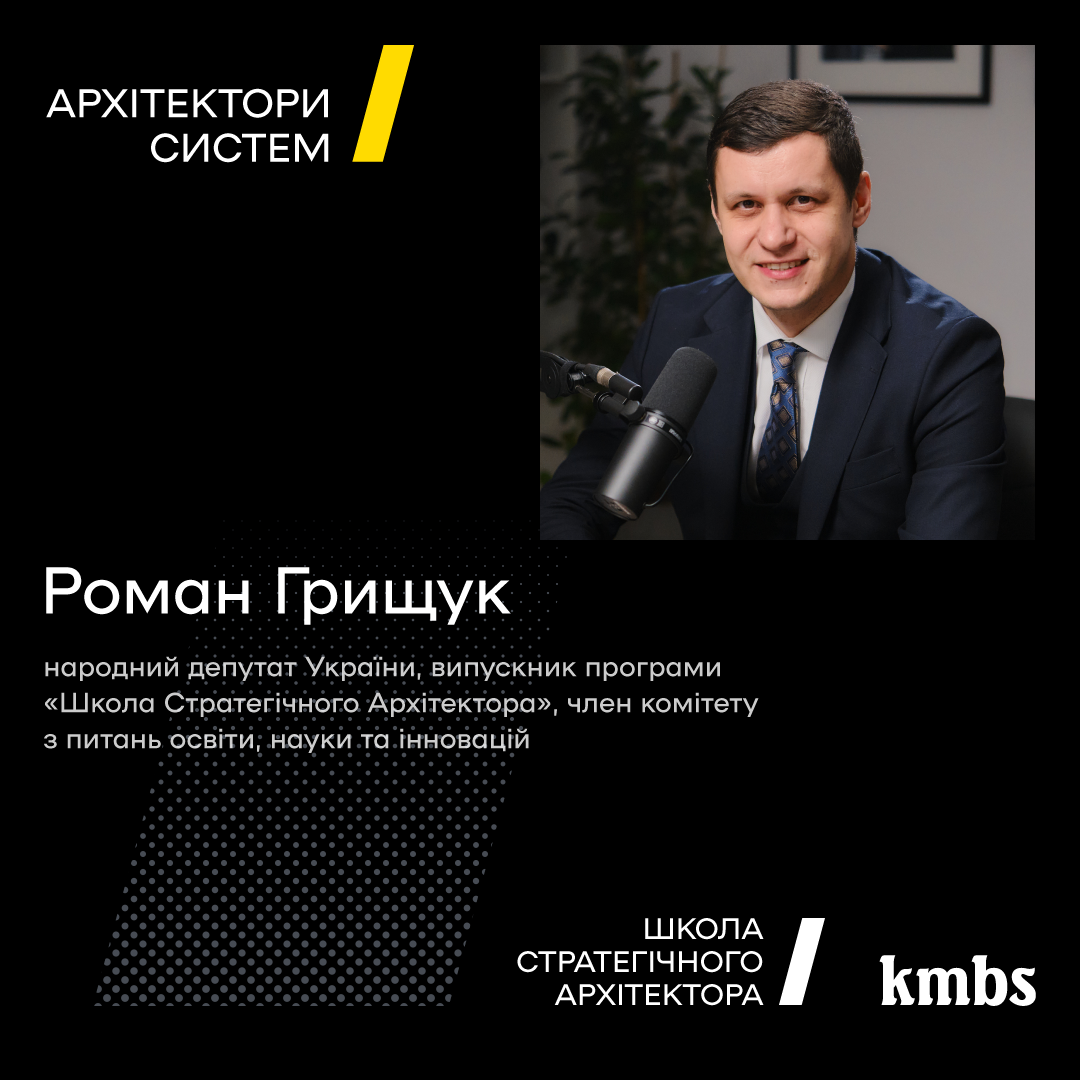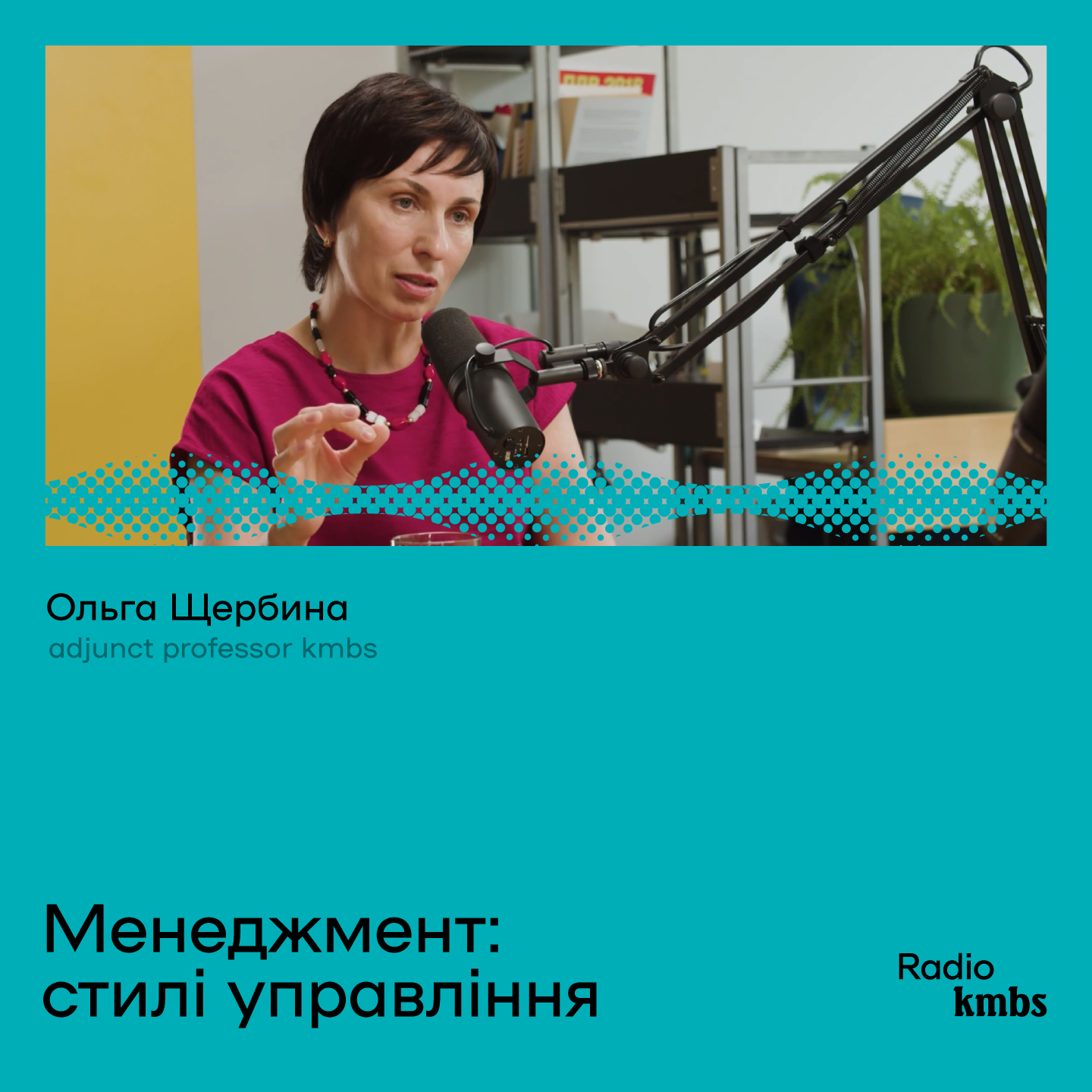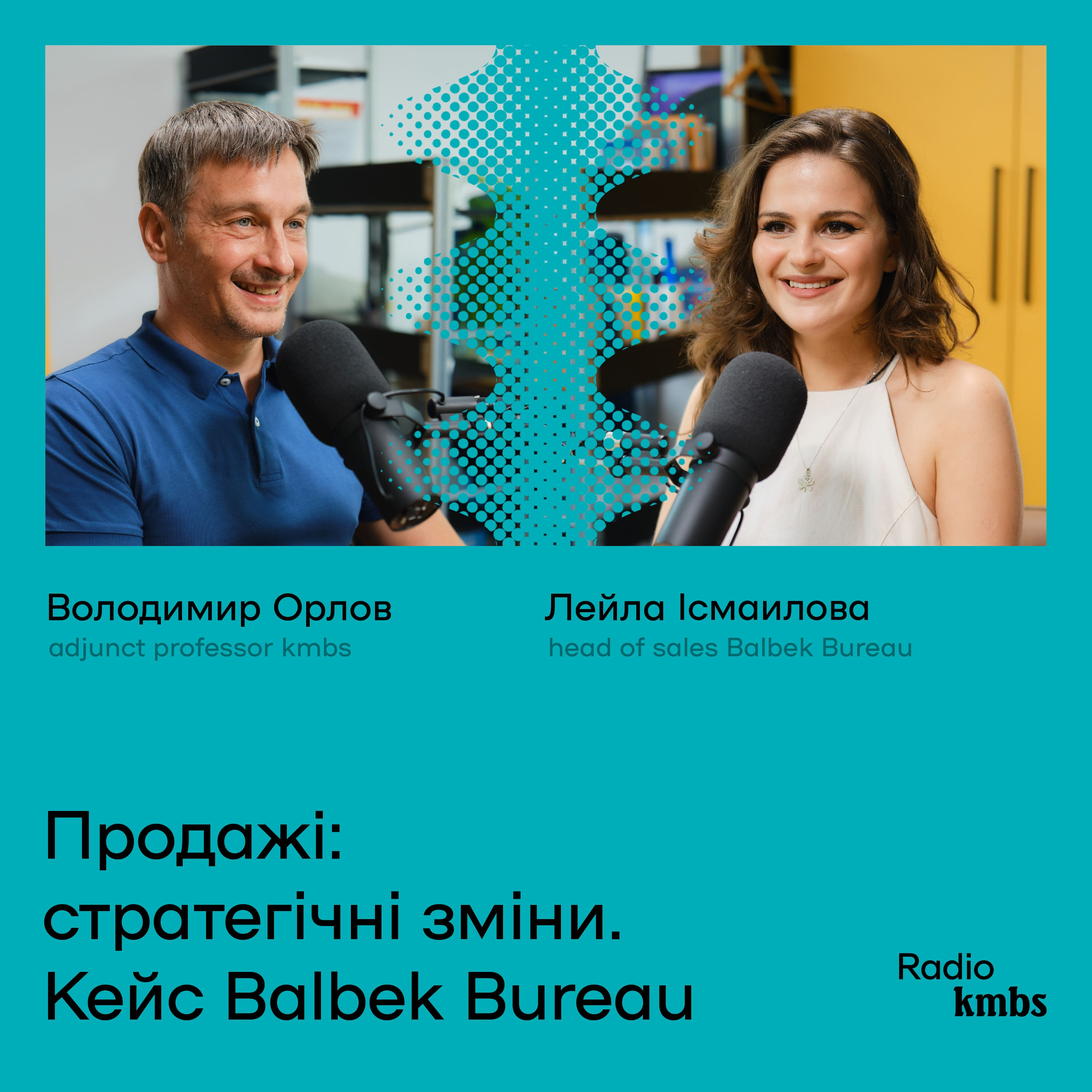Learn first
KMBS latest news in real time

For the latest KMBS events and news, visit KMBS Live at the top right corner of the screen
Open kmbs live 15.07.2022
15.07.2022 2682
2682 4min
4minBusiness (not) as usual
In the first days after the start of the war, I could not think about business at all. All thoughts were only about saving the family. When my loved ones crossed the border, I began to think about how to unite workers and help them. Our company has almost 120 people. We created a Telegram group and held general Zoom conferences. Then it was not about business, but only about understanding who and where and supporting each other.
Also, on the first day of the war, we paid all the workers two months' wages in advance and put money on their fuel cards. After all, war and evacuation require a lot of money.
For the next two weeks, business was "at a standstill," but it could not last forever. Marketing activity stopped altogether, which is quite understandable. But we had to restore logistics quite quickly. After all, even during the war, people get sick and need medicine. By then, I had already returned to Kyiv and was ready to work at total capacity.
Our work is "tied" to the three largest distributors, which have almost stopped. Pharmacies were empty. Logistics chains were broken. One of the distributors had a warehouse in Gostomel burned down. Another warehouse was under fire. Therefore, we had to look for workarounds: with the help of pharmacy chains, carriers, and "Nova Poshta." We set ourselves the task: to deliver medicines directly to pharmacies, so they are not empty. Never before have we worked in such a manual mode.
One of our products is Nalbuphine, a potent painkiller that can be used for combat injuries. We distributed thousands of units at the request of the military and TRO. This also required organization, but we managed to restore the warehouse and logistics as much as possible.
Later, it became clear that the warehouse should be moved from Kyiv to the west of Ukraine to minimize risks. We did this and established supply from the west to other regions.
From the beginning of April, we also resumed the work of a team of medical representatives - but only in those regions where it was safe to do so. And they began to conduct online activities. The fundamental decision made by our company is that we have to adapt to new conditions and work business during the war.
After all, long wars (and ours, I'm afraid, will be one of those) are won with the help of economics. Therefore, the maximum we can do is to take care of our patients, provide them with medicines, take care of the team, keep jobs, and pay taxes to the state budget. After all, our taxes are very significant - even more than the direct aid we provide.
Our organization is fully operational: launching new projects and bringing new brands to the country. Our only limitation is that our medical representatives cannot work in regions in the zone of active shelling (Kharkivsk, Mykolayivsk, Khersonsk, etc.).
As of July 1, we have retained 95% of the team. Some people who went abroad and decided to stay there are now starting to leave. Therefore, unfortunately, we will lose about 10-15% of the team. These are mainly medical representatives. They cannot work remotely. And everyone who stayed in Ukraine or can work online from abroad is still with us. In addition, new roles are emerging because the company is currently changing.
Transformation during the war
We started the transformation before the war, particularly prescribing business processes, using the approach and principles I learned about at kmbs. We want to create a new type of company on the Ukrainian farm market, which will not proceed from the logic of "how to earn as much money as possible for shareholders" but from the sense of the client. We have a crucial client role - "aware patient." And all our logic – merchandising, marketing, and any other – will be adjusted due to the needs of this role.
We understand that transformation during the war is a lottery. Difficult times are ahead, and an economic crisis is possible. But what we wanted to transform the business for has now manifested itself in society. More than 50% of people, after receiving a doctor's appointment, check it on Google. And we see our task not just to sell medicines but to help such people make informed decisions about their health. In particular, through interaction with doctors who treat patients not as stupid children but as a partner in the process of overcoming the disease.
We were afraid that there were not so many well-informed doctors and patients in Ukraine. But when the war started, it became clear: many of them. Ukrainians are very conscious and subjective, taking responsibility for themselves, others, and the country. So, they are ready, and our transformation is very timely.
Such changes require rethinking the business model. And starting from May, our structure is changing, new roles are emerging, and business processes are being described. Our entire management team is now involved in this. We started meeting on Zoom, and now almost all top managers are in Kyiv, so we meet offline (our office is open). Two leaders are mobilized, but they are not yet in the combat zone, so they can join online from time to time and help us with these changes.
Personal history of volunteering
After returning to Kyiv and resuming work, I realized I had a free weekend. And decided to devote them to a worthwhile cause.
By profession, I am a cardiologist, cardioreanimatologist. I have not worked "in the field" for a long time, but I know. I met the volunteers who launched the FRIDA project. It aims at medical evacuation with equipped ambulances (currently, there are 10). Volunteer doctors, already more than 40, can pick up patients in any condition, even on ventilators, and transport them anywhere. For example, this project was able to transport an injured girl from the Chernihiv Regional Hospital to Poland, from where she flew to Israel. After her, there were many other patients of varying severity.
This project's second work direction is outpatient visits to de-occupied regions or those where the humanitarian situation is complicated. A team of doctors examines patients, provides assistance, and dispenses medication. After their de-occupation, we were among the first to get to Buchi, Gostomel, and Borodyanka. People there did not have access to medical care and medicines for a month and a half (because the pharmacies were not working). They stormed the "fast" to get at least something from pressure and diabetes.
Today, Kyiv and Chernihiv regions are already fully covered by aid, and we are now thinking about where to move next. Perhaps it will be Kharkiv or Sumy regions.
I played various roles in the FRIDA project. At first, he was just a doctor. Of course, the long-term lack of practical experience shows, but I can still help people with hypertension or advise therapy. Then we had more practicing doctors on our team, and I became a coordinator, a paramedic, and an organizer. In short, a jack of all trades.
Now the organization is getting quite extensive, and my role is more managerial. We are negotiating with the Kyiv City Administration and have started cooperating with an Israeli foundation that provides psychological assistance. We aim to turn the project into a large volunteer organization that will continue to work after the war. And it is gradually becoming so.
Unfortunately, there is still no culture of medical volunteering in Ukraine. Medical teams appear to assist in emergency cases under shelling during military escalations and evacuate the wounded. But for medics to devote part of their time to volunteering (not necessarily military) is not common in our country. At the same time, many people do not have access to regular medicine, particularly in villages. People there often cannot reach district hospitals, and the result is a lot of neglected cases. We saw this when we provided aid, for example, near Chornobyl. Many health problems in people began long before the war.
We want to change this situation. We want to develop a culture of medical volunteerism. We want doctors to be willing and able to devote part of their time to unpaid help to those who need it. In Ukrainian realities, this is not an easy task, but it is our goal.










